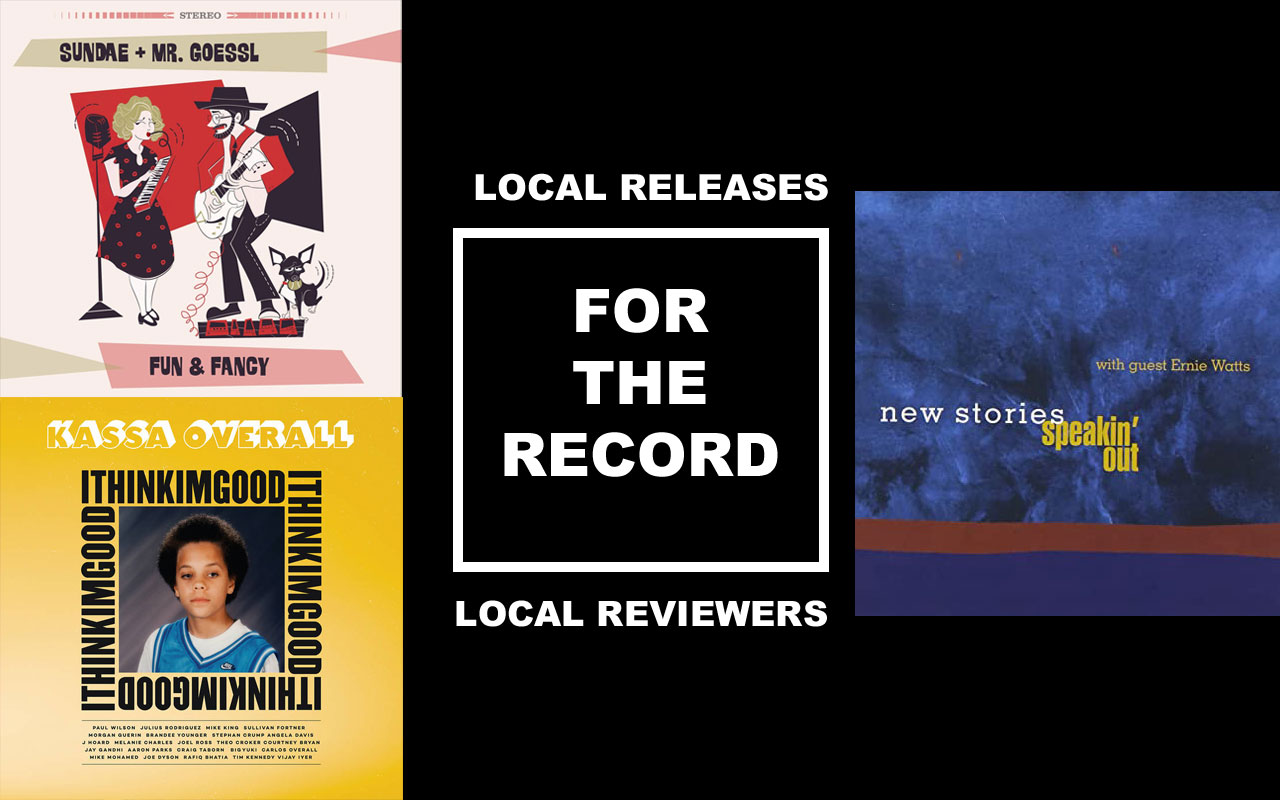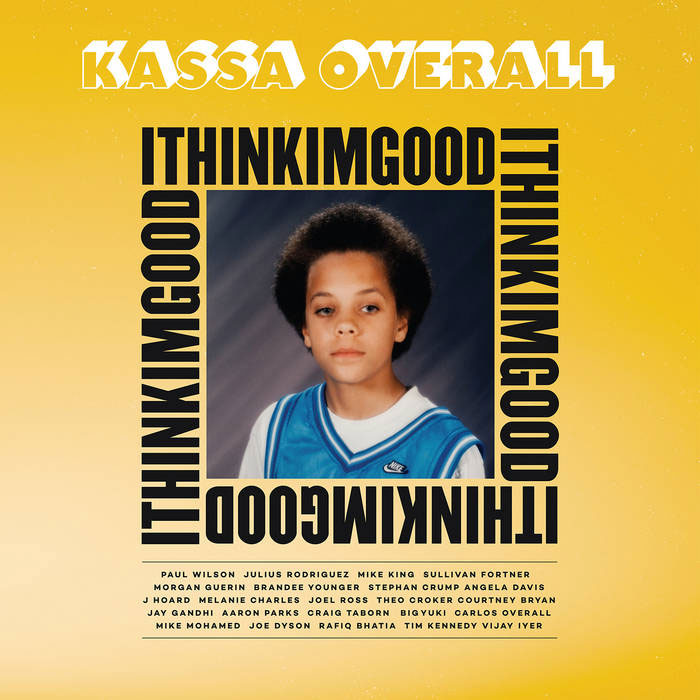

Kassa Overall
I THINK I’M GOOD
BROWNSWOOD RECORDINGS
Before May 2020 was even half-complete, three murders of unarmed African-Americans featured in the news cycle: Douglas Lewis, of St. Paul, MN; Breonna Taylor, of Louisville, KY; and Ahmaud Arbery, of Brunswick, GA. Each killing was unjustified, unnecessary, and, were there no video footage or witnesses available, would have most likely remained unreported and unprosecuted. These murders are another entry of an uncountable number of Black Americans gunned down without cause, which in turn is symptomatic of a four-hundred-year history of enslavement, of degradation, and of mass incarceration. Responses to the realities of ongoing racial inequalities and violence are varied and numerous: along with protests and grassroots demands for accountability, the arts have long used such tragedies to explore themes of pain and rage. In that context, Seattle-born and Brooklyn-based drummer Kassa Overall offers his most recent release, I THINK I’M GOOD. Combining jazz with hip-hop elements, Overall continues in a long tradition of using his music not only as an outcry against a system rooted in injustice, but also as a celebration and affirmation of Black American humanity.
“I Know You See Me” features a steady lyrical flow over increasingly chaotic instrumentation. The vocalist’s recitation maintains a consistent beat while cacophonous drums provide an ever-confusing feeling of being chased and atonal keys serve as a disorienting backdrop. The vocalist is seen, but in what way? The centering of the consistent rhythm of rap within an anarchic environment of free jazz serves to illustrate the navigation of Black life as being “seen”—as being constantly surveilled and followed by a dominant power structure—and not-“Seen” as an individual, seeking to maintain a centered, steady sense of self. Similarly, “Show Me A Prison” is built upon an interpolation of “There but for Fortune” by Phil Ochs. Prioritizing the first verse of Ochs’ composition, Overall uses the words to protest the mass incarceration of Black Americans. The song ends with a recording of a voicemail from Dr. Angela Davis in which she exhorts Overall to “Stay strong, my brother.” Its inclusion stresses the importance of resilience in the face of unjust systems.
Wynton Marsalis once described jazz as “the highest rendition of human emotion.” Indeed, the nuanced complexities of human emotion within an individually Black American context informs I THINK I’M GOOD. Sometimes the emotions are heavy and sometimes the feelings are uncomfortable. Over disjointed and staccato drums and saxophone, “Landline” juxtaposes reminisces of watching Saturday morning cartoons as a child, frying “eggs with honey on ‘em”, along with memories of “migraine headaches… a fever [and] surreal dreams of worlds unknown, filled with fear.” However, along with emotional disquietude is a consistent sense of lightness that permeates the music. One can feel the joy of a daydream in the song “Sleeping on the Train.” I THINK I’M GOOD is a celebration of hope and strength: of hope for self, of strength of the resilience of Black experiences, and of the hope for a stronger and more equitable American community.
–Grant Grays